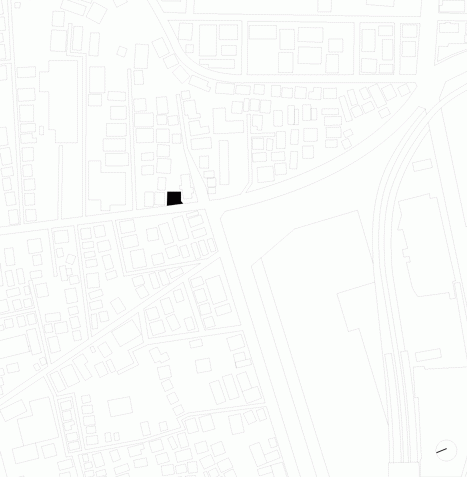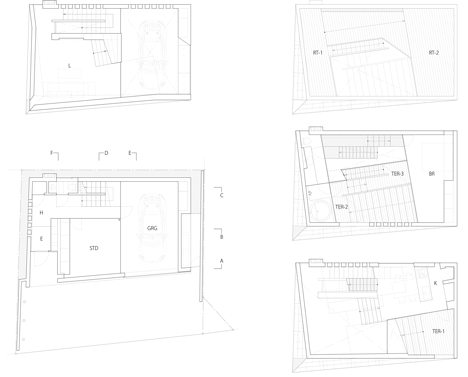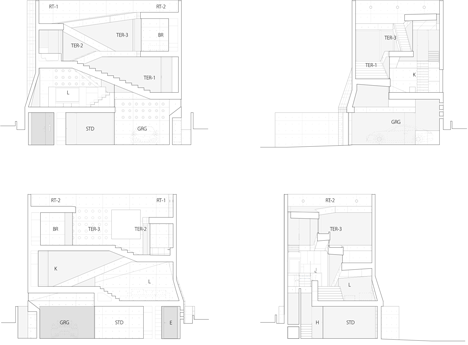Fuse Atelier's House in Tsudanuma brings light in through a perforated concrete facade
Square and circular holes puncture the concrete facade of this house in Japan by Fuse Atelier, allowing light to filter through to five small terraces concealed behind (+ movie).
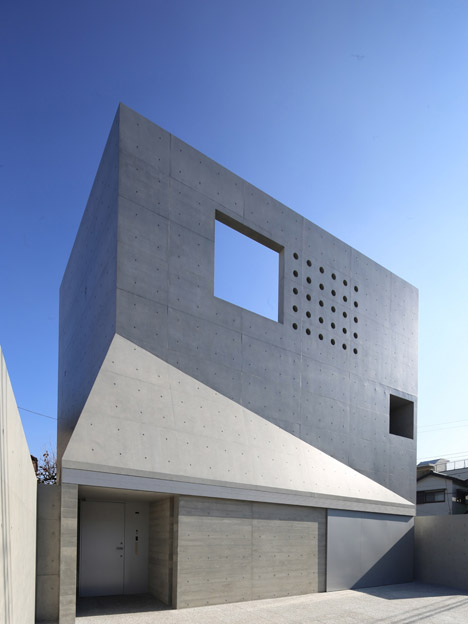
House in Tsudanuma was designed by Chiba-based Fuse Atelier for a couple in their 40s, who previously lived in an older house on the site, but chose to replace it with a contemporary concrete home.
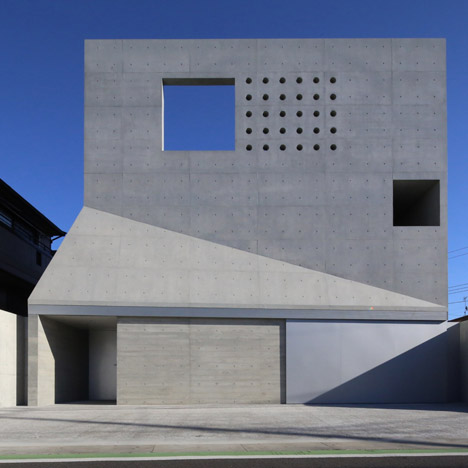
The three-storey house is located in Narashino, a city 37 kilometres east of Tokyo, and on a busy road close to a railway station and several large shops.
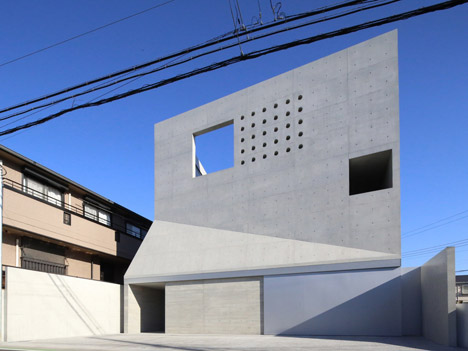
To block noise and vibrations from the road and maintain privacy for the owners, architect Shigeru Fuse designed a windowless concrete facade at the front.
He then added numerous terraces inside, which receive daylight through the square and circular holes.
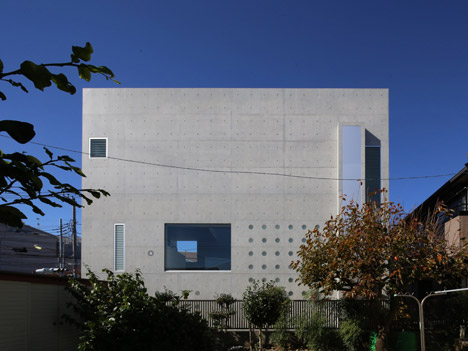
Noise is also minimised because the home is set back four metres from the street – a requirement from city planners to allow the road to be widened in the future.
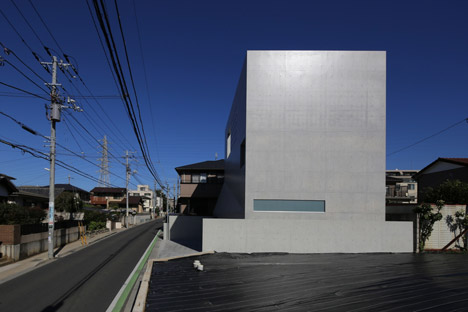
"The resulting open space at the front functions as a buffer between the street and the house," said Fuse.
"Upper parts of the building also had to be set back due to various legal limitations. As a result, the exterior was tapered between the second and third level."
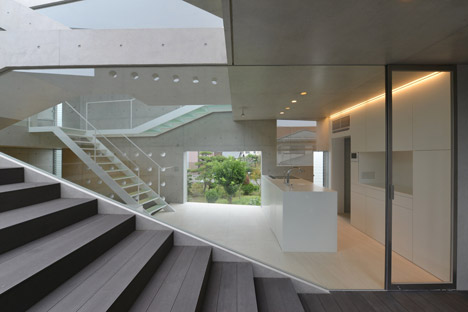
The house contains a garage and gym on the ground floor, while a series of split levels across the two upper floors provide a more gradual passage through the interior.
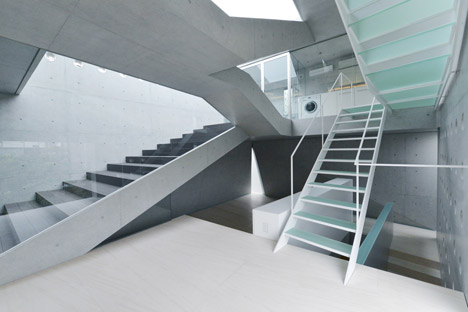
The living space is on the first floor, a kitchen is half a level up, and the bathroom is on the second floor. The home's only bedroom is another half a level up and there is also a roof terrace at the top.
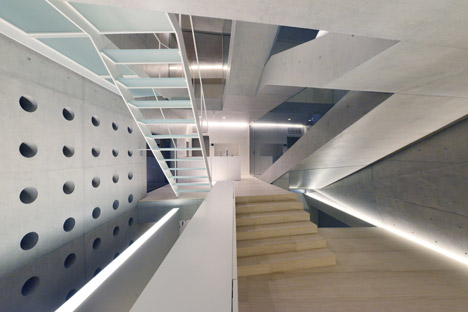
Two staircases crisscross a void in the centre of the house. One connects the rooms inside and the other connects the five small terraces, which are arranged next to the kitchen, bathroom and bedroom, and at either edge of the roof space.
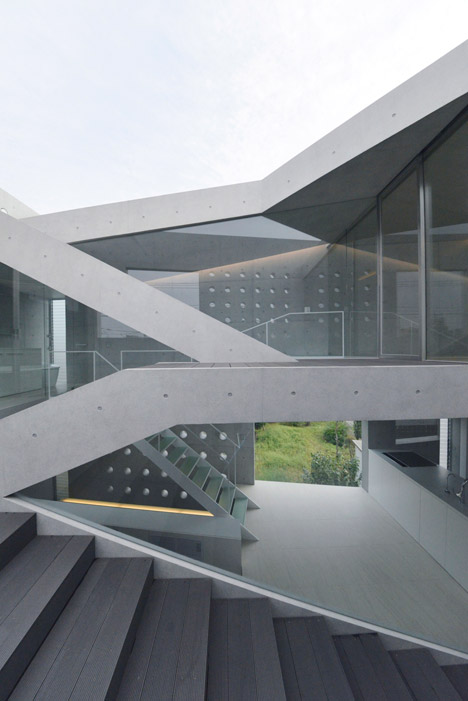
"The vertically arranged outdoor space, with a passage that leads from the terrace on the second level to the rooftop, effectively breaks up the interior space," said Fuse.
"Combined with the flow planning of the interior, this also amplifies the building's overall ease of navigation."
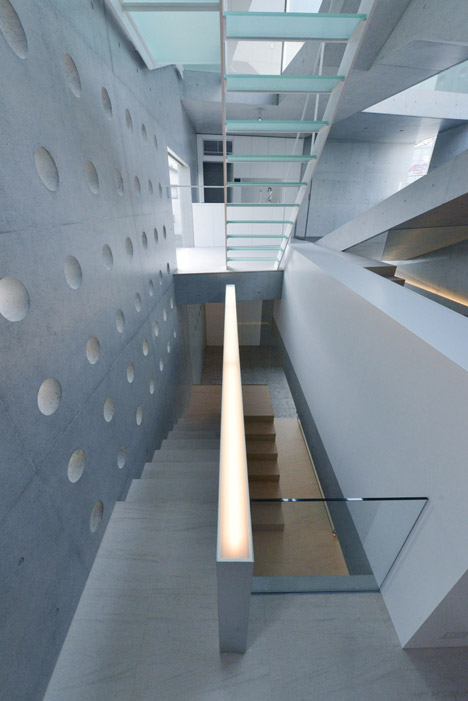
Gaps were left between some walls and floors to increase views and light through the rooms, and between the various levels.
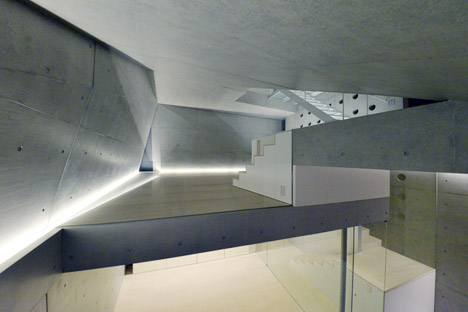
"We layered a network of sight lines to inspire diverse spatial relationships," explained Fuse.
"An accumulation of associated parts creates gaps both horizontally and vertically, leading the eye through surprising escapes."
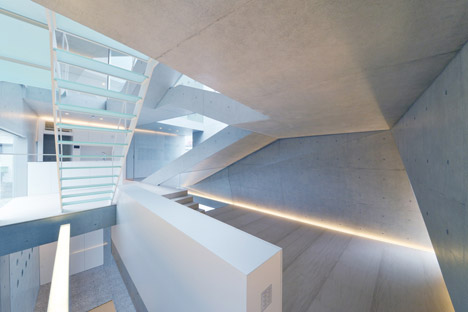
On the east-facing rear elevation, a large square window and smaller holes puncture the wall, mirroring the front of the house but set lower to bring light into the kitchen and living space.
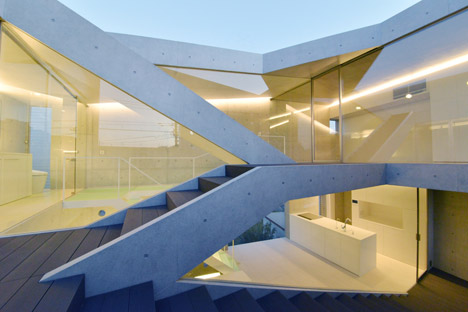
The house was built from reinforced concrete, which is left exposed inside and complemented by limestone flooring.
"By fully embracing the Minimalist details of concrete, glass, metal and rock, the space is intensified with a distinct sharpness, where the skeleton of the structure becomes visibly apparent," said Fuse.
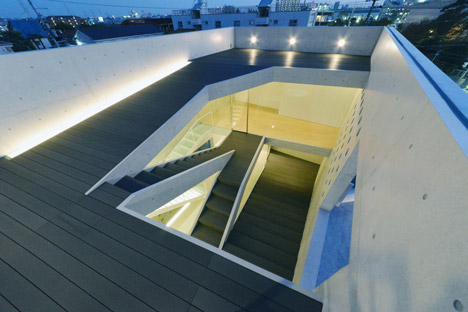
The house occupies a 63-square-metre footprint, has a total internal floor area of 153 square metres, and was completed over 16 months.
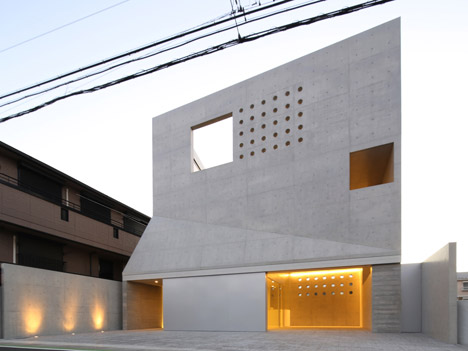
Other concrete houses recently completed in Japan include a Tokyo home for an art collector and a cantilevered residence in Toyohashi with a large plywood-lined living space.
Photography is by Shigeru Fuse.
Project credits:
Architect: Shigeru Fuse
Design team: Fuse Atelier, Musashino Art University
Structural engineer: Ysutaka Konishi
Main contractor: Three F
